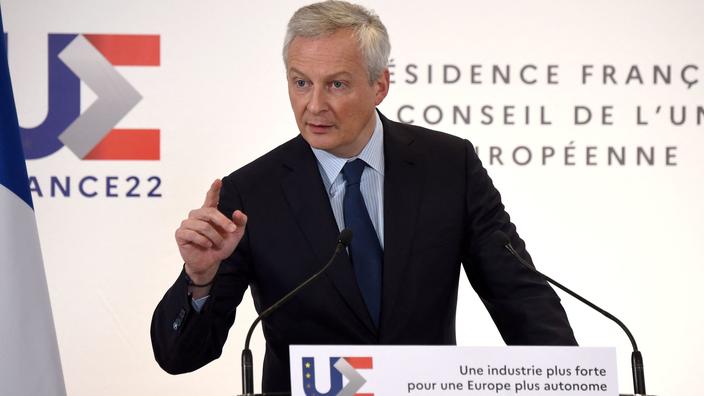The energy crisis figures prominently in the discussions of European ministers meeting on Saturday in Amiens, but the EU-27 remain torn between France's desire to reform the electricity market and that of other countries to secure stocks of gas.
On the second day of their informal meeting, European Union energy ministers discuss soaring gas and electricity prices, which have forced governments to take costly action this winter to limit their impact on households and businesses.
Read alsoThe keys to understanding why electricity prices are rising
France, which currently holds the rotating presidency of the EU, has been pushing since October for a structural reform of the European electricity market, where wholesale prices are mechanically aligned with those of gas, which have been rising sharply for a few months.
A mechanism deemed "obsolete" by Paris, which would like its citizens to benefit more directly from the low costs of nuclear production, but which has so far struggled to convince, arousing fierce opposition from a dozen European countries.
"
We have an energy market which today is very protective, and which we need, which allows us to have the necessary interconnections to be able to have electricity everywhere, but we see that there are certainly an adaptation to be made, in particular on the retail markets
”, pleaded the Minister for the French Ecological Transition, Barbara Pompili.
Read alsoElectricity prices: industrialists demand more from the executive
She wants the “
efforts to decarbonize the methods of electricity production
”, therefore nuclear and renewable energies, to be better reflected in the prices paid by consumers in each country.
"
We are moving forward, for the moment we are still discussing it,
" said the minister.
The wholesale price on the European market is currently subject to so-called “
marginal cost
” pricing
: it does not reflect the average cost of all the production plants but that of the last plant needed to balance the network.
However, it is often a gas plant.
The French Minister of the Economy, Bruno Le Maire, was more direct this week: “
We want to get our money's worth, for our investments in nuclear power.
“
We want to decorrelate once and for all the cost of electricity produced in France from the marginal cost of opening gas-fired power stations in the rest of Europe
,” he recalled.
"
It's a subject that France carries, but which does not have a very positive echo among many
", explained Adam Guibourgé-Czetwertynski, Polish Secretary of State for Climate.
Absorb shocks
"
This electricity market, we took 25 or 30 years to build it, it has reasons to function as it does
", abounded in Amiens the Luxembourg Minister Claude Turmes, referring in passing to France to the difficulties of its nuclear power plants this winter.
For him, the problem is elsewhere: “
electricity prices are very high because gas prices are completely crazy.
The first thing to do is to reassure the gas market, soothe the nervousness
” of market players.
He thus advances the need for a better filling of gas stocks for the winter, in particular in countries like Germany where they are currently low, accentuating their fragility in the face of the failures of Russian supply and the ups and downs in prices caused for example by fears of an invasion of Ukraine.
Read alsoGermany accelerates on renewable energies
Poland also sees favorably "
longer-term solutions which make it possible to ensure greater market stability, larger reserves of gas which would make it possible to cushion the shocks and this instrumentalization which is made by Russia
“adds Adam Guibourgé-Czetwertynski.
Rather than a solution at Twenty-Seven, Luxembourg is preparing to lead discussions with a few States (Luxembourg, Belgium, the Netherlands, Germany, Austria), with a view to generalizing among them regulations imposing a minimum level of storage of gas, similar to what currently exists in France.
Another initiative encouraged by Claude Turmes: establish long-term supply contracts with producing countries deemed more reliable than Russia, such as Norway or Canada.

